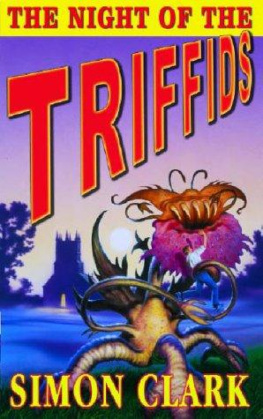Clark John P. - Impossible Community
Here you can read online Clark John P. - Impossible Community full text of the book (entire story) in english for free. Download pdf and epub, get meaning, cover and reviews about this ebook. year: 2013, publisher: Bloomsbury Publishing, genre: Politics. Description of the work, (preface) as well as reviews are available. Best literature library LitArk.com created for fans of good reading and offers a wide selection of genres:
Romance novel
Science fiction
Adventure
Detective
Science
History
Home and family
Prose
Art
Politics
Computer
Non-fiction
Religion
Business
Children
Humor
Choose a favorite category and find really read worthwhile books. Enjoy immersion in the world of imagination, feel the emotions of the characters or learn something new for yourself, make an fascinating discovery.
- Book:Impossible Community
- Author:
- Publisher:Bloomsbury Publishing
- Genre:
- Year:2013
- Rating:3 / 5
- Favourites:Add to favourites
- Your mark:
- 60
- 1
- 2
- 3
- 4
- 5
Impossible Community: summary, description and annotation
We offer to read an annotation, description, summary or preface (depends on what the author of the book "Impossible Community" wrote himself). If you haven't found the necessary information about the book — write in the comments, we will try to find it.
Impossible Community — read online for free the complete book (whole text) full work
Below is the text of the book, divided by pages. System saving the place of the last page read, allows you to conveniently read the book "Impossible Community" online for free, without having to search again every time where you left off. Put a bookmark, and you can go to the page where you finished reading at any time.
Font size:
Interval:
Bookmark:
CONTEMPORARY ANARCHIST STUDIES
A series edited by
Laurence Davis, National University of Ireland, Maynooth
Uri Gordon, Arava Institute for Environmental Studies, Israel
Nathan Jun, Midwestern State University, USA
Alex Prichard, London School of Economics, UK
Contemporary Anarchist Studies promotes the study of anarchism as a framework for understanding and acting on the most pressing problems of our times. The series publishes cutting edge, socially-engaged scholarship from around the world bridging theory and practice, academic rigor and the insights of contemporary activism.
The topical scope of the series encompasses anarchist history and theory broadly construed; individual anarchist thinkers; anarchist-informed analysis of current issues and institutions; and anarchist or anarchist-inspired movements and practices. Contributions informed by anti-capitalist, feminist, ecological, indigenous, and non-Western or global South anarchist perspectives are particularly welcome. So, too, are manuscripts that promise to illuminate the relationships between the personal and the political aspects of transformative social change, local and global problems, and anarchism and other movements and ideologies. Above all, we wish to publish books that will help activist scholars and scholar activists think about how to challenge and build real alternatives to existing structures of oppression and injustice.
International Editorial Advisory Board:
Martha Ackelsberg, Smith College
John Clark, Loyola University
Jesse Cohn, Purdue University
Ronald Creagh, Universit Paul Valry
Marianne Enckell, Centre International de Recherches sur lAnarchisme
Benjamin Franks, University of Glasgow
Judy Greenway, University of East London
Ruth Kinna, Loughborough University
Todd May, Clemson University
Salvo Vaccaro, Universit di Palermo
Lucien van der Walt, University of the Witwatersrand
Charles Weigl, AK Press
The Impossible Community
Realizing Communitarian Anarchism
John P. Clark

Bloomsbury Academic
An imprint of Bloomsbury Publishing Plc
175 Fifth Avenue New York NY 10010 USA
50 Bedford Square London WC1B 3DP UK
www.bloomsbury.com
First published 2013
John P. Clark, 2013
All rights reserved. No part of this publication may be reproduced or transmitted in any form or by any means, electronic or mechanical, including photocopying, recording, or any information storage or retrieval system, without prior permission in writing from the publishers.
No responsibility for loss caused to any individual or organization acting on or refraining from action as a result of the material in this publication can be accepted by Bloomsbury Academic or the author.
ISBN: 978-1-4411-2487-6
Library of Congress Cataloging-in-Publication Data
Clark, John P., 1945
The impossible community : realizing communitarian anarchism / John P. Clark.
pages cm. (Contemporary anarchist studies)
ISBN 978-1-4411-4225-2 (hardcover : alk. paper)
ISBN 978-1-4411-8547-1 (pbk. : alk. paper) 1. Anarchism. 2. Socialism. I. Title.
HX833.C562 2013
335.83dc23
2012051337
CONTENTS
This book is about the quest for the free community, the community of liberation and solidarity. It seeks to convey the message that we need to think more deeply and carefully about the meaning of free community, and about the obstacles that stand in the way of its realization. Above all, it seeks to convey the message: create it now.
Underlying this work is a sense of horror and a sense of hope. The horror arises from the fact that humanity is in the process of inflicting on the planet the sixth great mass extinction in the history of life on earth, while at the same time we have the means to flourish without devastating the biosphere. The horror arises from the fact that over a billion human beings live in absolute poverty, suffering from chronic malnutrition and other ills, while we have much more than an adequate material basis for a good life for all. A question underlying everything here is why we continue to live in a state of denial and disavowal, and how we might emerge from that state.
The hope comes from the fact that we have long had an answer to these questions, and some have begun to make that answer a reality. The effective response to such an extreme denial of reality was discovered thousands of years ago. This response is that, first, we must do whatever is necessary to awaken ourselves from our deadened state, and to open ourselves up to reality, to others, to nature, to the things themselves. Second, we must dedicate ourselves to a path of liberation and solidarity. And third, we must find, here and now, a community of others who have taken the risk of awakening, and who are following the same path, for this the only way that the path can be sustained.
This work is inspired above all by the experience of community and solidarity. I would like to express my deep gratitude for the knowledge, support, and inspiration I have received from the many small groups, communities, cooperatives, publishing projects, research groups, and collectives in which I have participated, or to which I been close personally, over the years, and which have in various ways helped shape my thoughts and feelings about community.
Among these are A Rivista Anarchica, Black Pearl Mutual Aid and Pleasure Club, Blue Iris Sangha, Borsodis Coffeehouse, Broadway Food Co-op, Capitalism Nature Socialism, Centro Studi Libertari, Common Ground Collective, Community Co-op, Crescent City Anti-Authoritarians, Delta Greens, Divergences, Earth First!, Ecosocialist Horizons, Fifth Estate, Freeport Watch, Free University of New Orleans, Frontyard Cooperative Preschool, Glad Day Books, Harvest Moon Co-op, Industrial Workers of the World, Innovative Education Coalition, Institute for Social Ecology, Iron Rail Bookstore & Library, Lha Charitable Trust, Libertaria, Louisiana Himalaya Association, Loyola Greens, Mesechabe, New Orleans Food Co-op, New Orleans Food Not Bombs, New Orleans Free School Network, New Orleans Friends Meeting, New Orleans Libertarian Alliance, New Orleans Philocaf, New Orleans Social Ecology Group, NOLA Anarchists, North American Anarchist Studies Network, Pax Christi New Orleans, Occupy NOLA, Oystershell Alliance, Planet Drum Foundation, Psychic Swamp, Research on Anarchism, Seventh Ward Soul Patrol, Solidarity Economy Group, Street Named Desire Collective, University Cooperative Preschool, and the ZigZag Study Group.
Portions of this book were published previously. We are grateful to the following publications and presses for their generous permission to reprint the text.
To Situations: Project of the Radical imagination, a publication of The CUNY Graduate Center for portions of : Critique of the Gotham Program.
To Manchester University Press for portions of : Anarchy and the Dialectic of Utopia.
To Capitalism Nature Socialism for portions of : The Common Good.
To Perspectives in Anarchist Theory for portions of : Bridging the Unbridgeable Chasm.
To Guilford Press for portions of : Beyond the Limits of the City.
To the Journal of Environmental Thought and Education and Sougou Ningengaku (Synthetic Anthropology) for portions of
In contemporary political theory, libertarianism and communitarianism are looked upon more or less as opposite ends of the political spectrum. Thus, this work, which is in large part the elaboration of a libertarian communitarianism, might be met with a certain skepticism, and, indeed, might even be seen as entirely self-contradictory. But such skepticism would reveal more than anything the unfortunate limits of contemporary political discourse, and, more particularly, those of its dominant Anglo-American forms of expression. The actual existence of a phenomenon is a powerful argument in favor of its possibility. And there is, in fact, a long tradition of libertarian communitarian thought, a tradition that possesses considerable coherence and consistency. There exists, moreover, a vast range of historical phenomena that have inspired this tradition, and which instantiate many of its claims concerning social possibilities. The goal here is not only to continue this tradition and defend it, but also to explore what it would mean to realize its most radical implications. It is to show how a radically anarchistic conception of freedom and a radically communitarian conception of solidarity complement and fulfill one another. It is to show, to paraphrase Bakunin, that liberty without solidarity is privilege and injustice, while solidarity without liberty is slavery and despotism. It is to defend the thesis that it is to the degree that these values are synthesized in the free community that both injustice and despotism can be avoided.
Next pageFont size:
Interval:
Bookmark:
Similar books «Impossible Community»
Look at similar books to Impossible Community. We have selected literature similar in name and meaning in the hope of providing readers with more options to find new, interesting, not yet read works.
Discussion, reviews of the book Impossible Community and just readers' own opinions. Leave your comments, write what you think about the work, its meaning or the main characters. Specify what exactly you liked and what you didn't like, and why you think so.

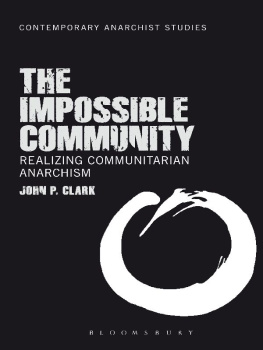
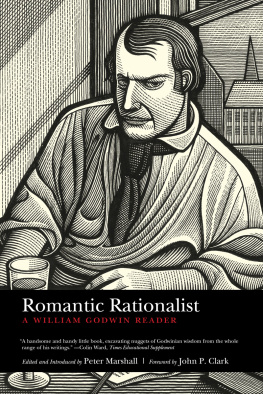
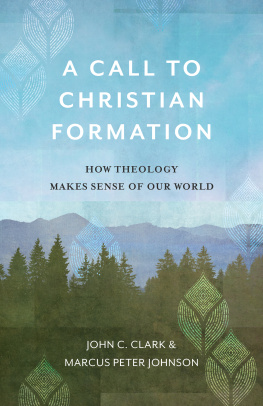
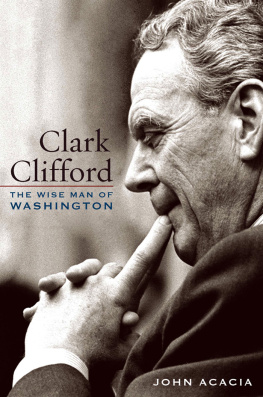


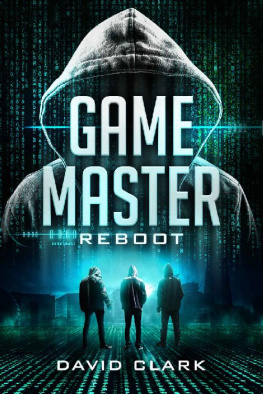
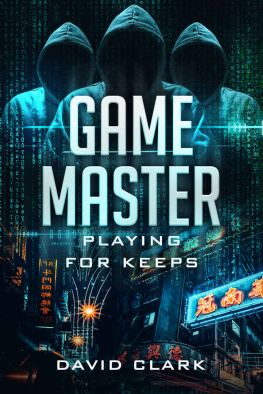

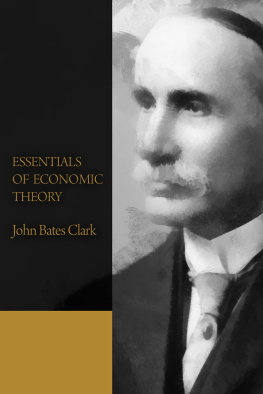
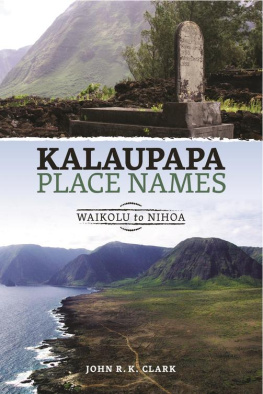
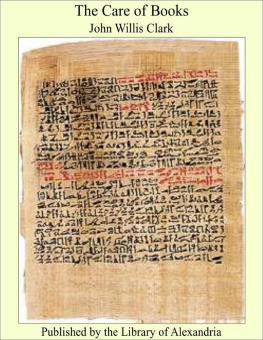
![John Willis Clark - Libraries in the Medieval and Renaissance Periods: The Rede Lecture Delivered June 13, 1894, by J. W. Clark [ 1894 ]](/uploads/posts/book/60919/thumbs/john-willis-clark-libraries-in-the-medieval-and.jpg)
